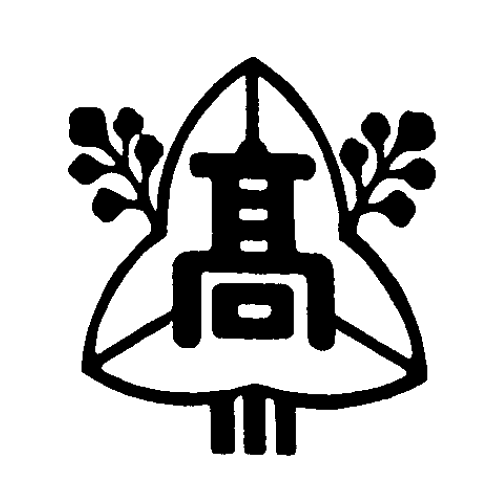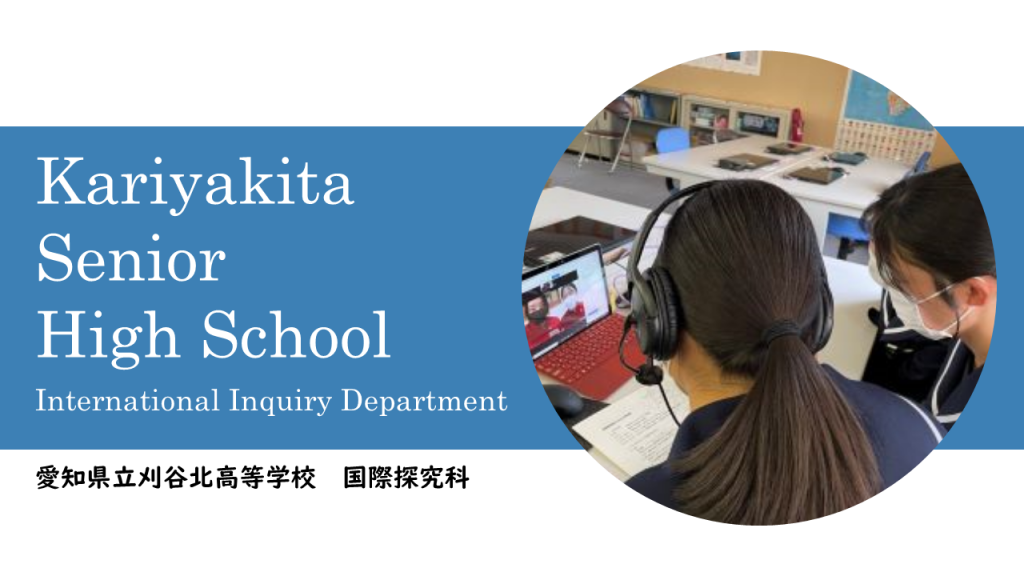
The Department of International Liberal Studies, which was established during the 2019 academic year, was rebranded as the Department of International Inquiry for the 2023 academic year. Only forty students per class are accepted into the program. In addition to a specialized curriculum, a wide variety of international understanding events, and exchange with foreign countries, the program emphasizes inquiry-based learning, which will be necessary in the future society.
Characteristics we are hoping to develop
~Inquirers who face the world issues~
・a person who proactively tackles issues for which answers are not easy to find, and pursues them with vigorous inquisitiveness and critical thinking
・a person who will be a bridge between the local community and the world, and demonstrate leadership as a bearer of multicultural conviviality and a sustainable society
・a person who has a rich ability to express themselves and has an international outlook, and who will open up the future in cooperation with people from various countries and backgrounds
Educational Content
~Characteristic Classes~
In addition to practical language classes taught by professional instructors teaching English, the International Inquiry Department offers Global Citizenship Education (GCED), in which students learn and think about global issues such as the SDGs.
| First Year | Comprehensive English I (compulsory) This class is designed to cultivate the four skills of reading, listening, writing, and speaking in a well-balanced manner. (small group, native English speaking instructor) Essay Writing I (compulsory) This course is designed to enable students to express their thoughts and experiences using rich vocabulary, expressions, and correct grammar. (Small group, native instructor) Comprehensive Inquiry Time (compulsory) Students will learn the basic ‘process’ of inquiry through actual inquiry activities. Students have the opportunity to take workshops with outside instructors, visit experts and companies, and present their exploration activities to their sister school in Korea, a fellow UNESCO school, and to other people inside and outside of the school. They will receive feedback and further deepen their exploration activities. |
| Second year | Comprehensive English II (compulsory) (native English teacher) Debate Discussion I (compulsory) Students discuss controversial topics and strengthen their speaking and logical thinking skills. (small group, native instructor) International Inquiry & Comprehensive Inquiry Time (Compulsory) Students will use the “process” they acquired in the first year to research their interests and issues facing society. They will consider their own conclusions while visiting experts and companies and making presentations to people inside and outside the school. Second Foreign Language (GC Humanities elective required) Students choose and study one of the following four languages: Korean, Spanish, German, and Chinese. Students will broaden their horizons by learning a foreign language other than English. (Small group, native teacher) |
| Third year | Comprehensive Inquiry Time (compulsory) Students write a paper in English based on their inquiry activities up to this point. Students will put the results of their three years of study into form, making use of what they have learned in English classes and learning how to write papers in English. Comprehensive English III (compulsory) (native English instructor) Essay Writing II (compulsory) (small group, native instructor) World English (required for GC Humanities) Students learn about cultures and societies around the world in English. (Native instructor) Debate Discussion II (GC Liberal Arts Type II) (small group, native instructor) Current Events English (GC Liberal Arts II) Using actual news articles and news videos, students learn about cutting-edge current events in English and deepen their thinking. (Small group) |
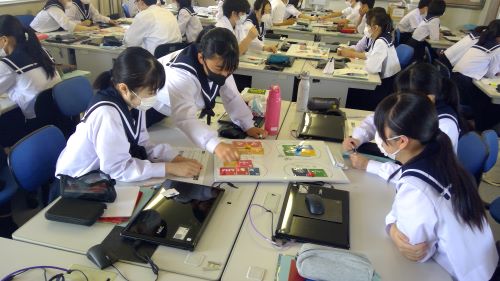
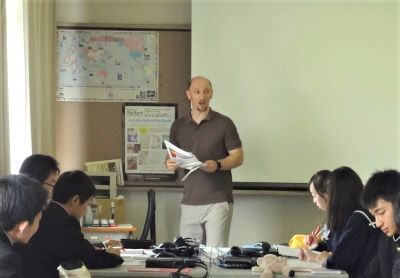
・Inquiry activities
Students will not be satisfied with mere research and presentations, but will thoroughly explore their own interests and social issues. Students delve deeper into the topic through a variety of activities, such as visiting experts and global companies to gather information, going out for fieldwork, presenting their findings to people inside and outside the school, and reconsidering their questions after receiving feedback. We believe that there are things that are difficult to accomplish alone, but can be accomplished with the help of peers. Let’s embark on an insatiable journey of exploration to become “explorers” who tackle the world issues!
・Collaboration with local universities and companies
In conducting inquiry activities, we will collaborate with nearby private companies and universities to consider more concrete ways to find solutions to social problems and issues. By listening to the stories of companies and universities, students will broaden their perspectives and think of ways to solve problems and issues, and by presenting the results of their thinking and receiving advice, they will lead to deeper exploratory learning. Through inquiry activities, students will actively connect with the local community and cultivate the social problem-solving skills necessary to be active on the world stage.
Introduction of Courses
・Global Science (GS) Course (Science)
・Global Communication (GC) Course (Humanities)
In the International Exploration Course, students are divided into Humanities and Science from the second year. For details, please refer to the curriculum chart below.

Featured Events
| Overseas programs of visiting sister schools | The students take turns visiting our sister schools in South Korea and Australia each year. The program includes exchange with the sister schools and city study. If there are too many applicants, a lottery will be held. |
| Hosting of sister schools’ visits | Hosting of visits: Each year we take turns hosting a delegation from our sister schools based in Korea and Australia. Since both visits include a homestay, host families will be recruited from our student families. Students in the International Inquiry Course take classes together and deepen exchanges. |
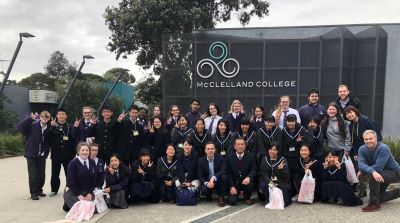
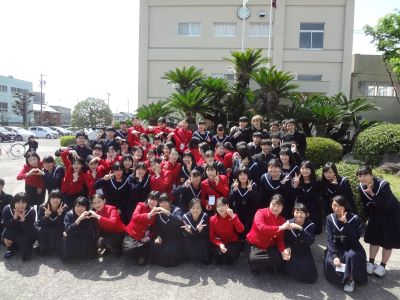
Voices from current students
~My future options have expanded!~
I am a student of our school’s International Studies Department. I feel that I have been able to broaden my career options by studying at our school’s International Liberal Arts Department. In today’s globalized world, being able to speak English is not something special. The Department examines what it takes to become a global person and provides opportunities for students to gain a variety of experiences. I have tried to improve my English skills by taking advantage of the unique English presentation and essay writing classes offered by the Department, and I have tried to make the most of various opportunities. As a result, I was able to gain experience interacting with students from other countries through events such as the Model United Nations. As I entered my senior year of high school, I was very unsure about my future path, but my three years of experience pushed me to decide to go on to an overseas college after graduation. I am not sure how good my English skills will be, but I will continue to devote myself to it while making use of what I have learned in the past three years.
~A global experience!~
I am sure that I will be able to learn a lot in my three years at university. Many students in the International Liberal Arts Department have a global perspective, such as those who have experience abroad or are interested in international issues and world cultures. Since I was also interested in foreign countries, I met students who had similar goals to mine, and I feel that we were able to improve each other while constantly stimulating each other. In English classes, there are English-only classes taught by native instructors, which are not available in regular courses, so students are exposed to English naturally on a regular basis. In addition, students will have many opportunities to give presentations and discuss in groups in English, which will help them gain confidence in speaking English in front of others. Another major advantage is the opportunity to learn about international issues and cultures through classes and interaction with students from other countries. I believe that studying in the Department, which has unique features, will give you a variety of “experiences” that will be of great help to you in the future. I have heard stories from people working in the international community and thought about many global issues in the International Inquiry class, and this has strengthened my desire to contribute to the international community.
Voices from Graduates
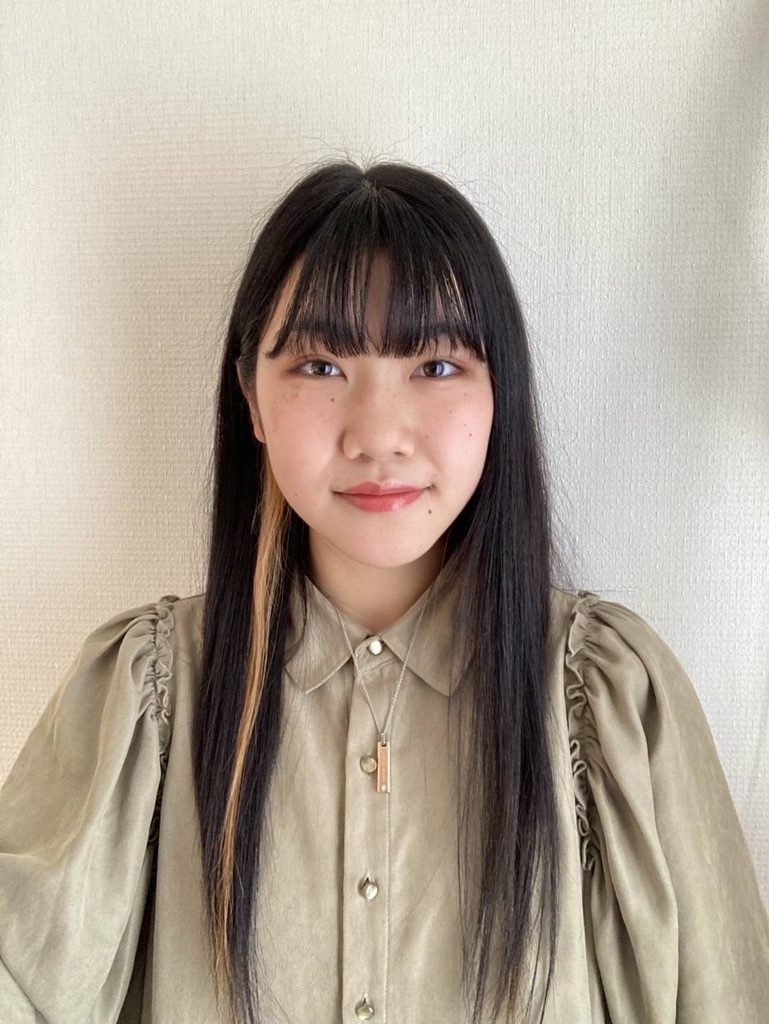
One of the best things about studying in the Department of International Liberal Arts is that I find it very easy to write essays and give presentations in English. Since I had many opportunities to write essays and give presentations in front of everyone at the Department, even after entering university, I can write long sentences smoothly in a short time, which makes writing reports easier, and I often receive high marks for the structure of my presentations and the quality of my PowerPoint presentations. I have heard from my friends in college that this kind of experience is not common in other high schools, so I think this is a strong point unique to the Department!
Minami Koyama
(a first-year student of the Liberal Arts program)
I was able to develop the ability to proactively express my opinions through my participation in the International Liberal Arts program. I had many opportunities to express my opinions in English. Japanese people tend to be hesitant to express their opinions. I myself was not very good at expressing my opinions in a positive manner. However, through the many opportunities I had in class, I gradually became accustomed to expressing my opinions. I am currently studying a new language, Spanish, at university, and I have come to feel that this ability to express myself is very important for language acquisition. I believe that this ability will be useful not only in language acquisition, but also in the future when I enter the workforce.
Ren Suzuki
(a first-year student of the Department of International Liberal Studies)
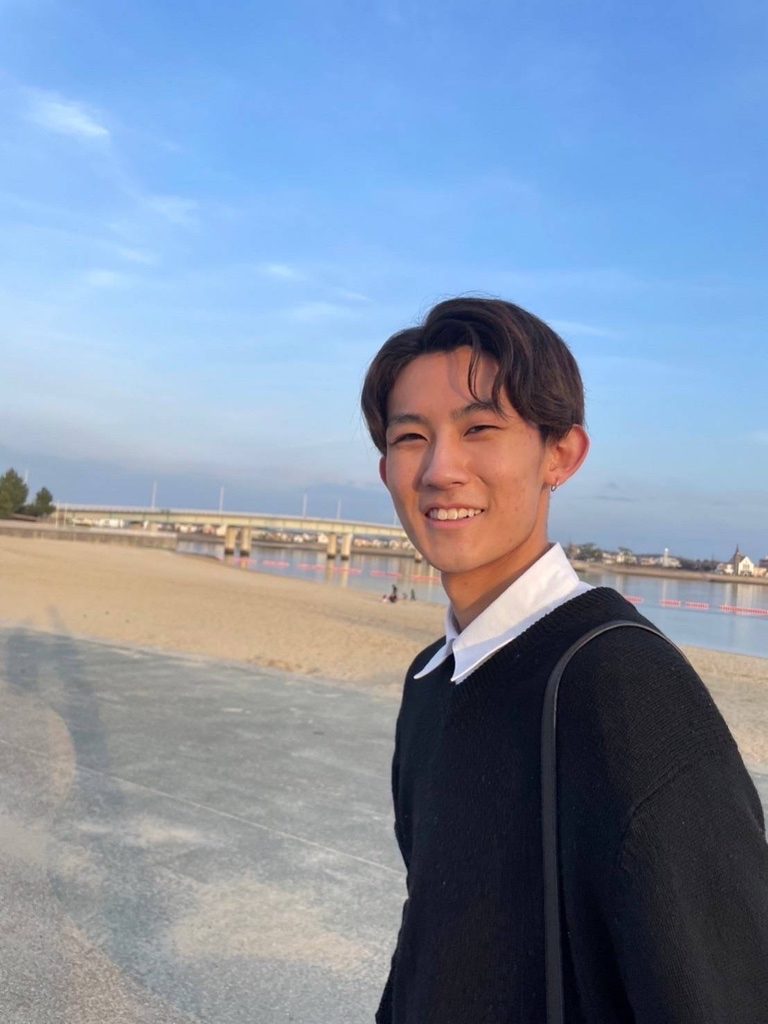
English teachers
Jason
Merri
